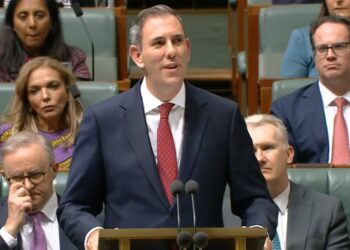The prudential regulator’s annual fund-level superannuation statistics for June 2023 include a list of expenses that super funds incurred through the provision of advice to members over the 12 months to 30 June 2023.
The analysis found that the 65 funds that provided advice to members spent a total of $1.86 billion on advice, which includes $81.4 million relating to intra-fund advice. This works out to be an average of $28.5 million per super fund.
The highest spenders all fell in the retail super fund space, with eight retail funds spending more than $100 million.
Wealth Personal Superannuation and Pension Fund (North) incurred the highest expenses at $294.5 million in FY23, followed by Macquarie Superannuation Plan with $221.5 million.
HUB24 Super Fund spent $172.8 million, ASGARD Independence Plan Division (BT) spent $149 million, followed by Netwealth Superannuation Master Fund at $145.5 million, MLC Superannuation Fund at $131.4 million, IOOF Portfolio Service Superannuation Fund at $118.6 million, and Colonial First State FirstChoice Superannuation Trust at $109 million.
This is in stark contrast to industry super funds, with Australian Retirement Trust at $57.9 million and HESTA at $15.8 million the only two industry funds to incur expenses above $10 million. The Australian Retirement Trust figure would place the fund at 11th overall.
As things currently stand, super funds can provide collectively charged advice to their members through intra-fund advice, however, this makes up just a tiny portion of the overall amount spent on providing advice.
Super funds also provide general advice through the use of call centres, in which fees are not collected from super members, as well as limited personal advice that can either be charged as intra-fund advice or through a fee deducted from the member’s account.
Comprehensive advice delivered by a super fund can also be paid for through member accounts, provided it directly relates to advice about super.
Last week, Financial Services Minister Stephen Jones announced a new class of financial advice providers – termed “qualified advisers” – that super funds and other institutions will be able to employ.
“Qualified advisers will focus on providing simple financial advice,” Mr Jones said.
Moreover, qualified advisers will be prohibited from charging a fee and from receiving a commission, which is also expected to help restrict their advice to simple advice.
“And on qualifications, as the name suggests, they will be required to meet a government-mandated education standard,” the minister said.
“The exact level of education will be determined in time, but a minimum standard of a diploma may be the right balance, it will be less onerous than the requirements for professional advisers.”



